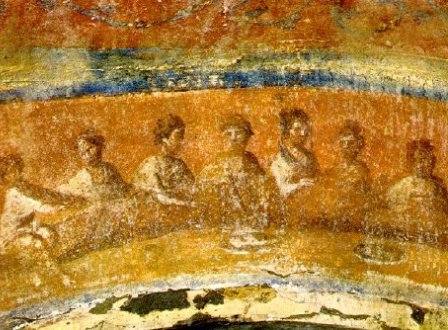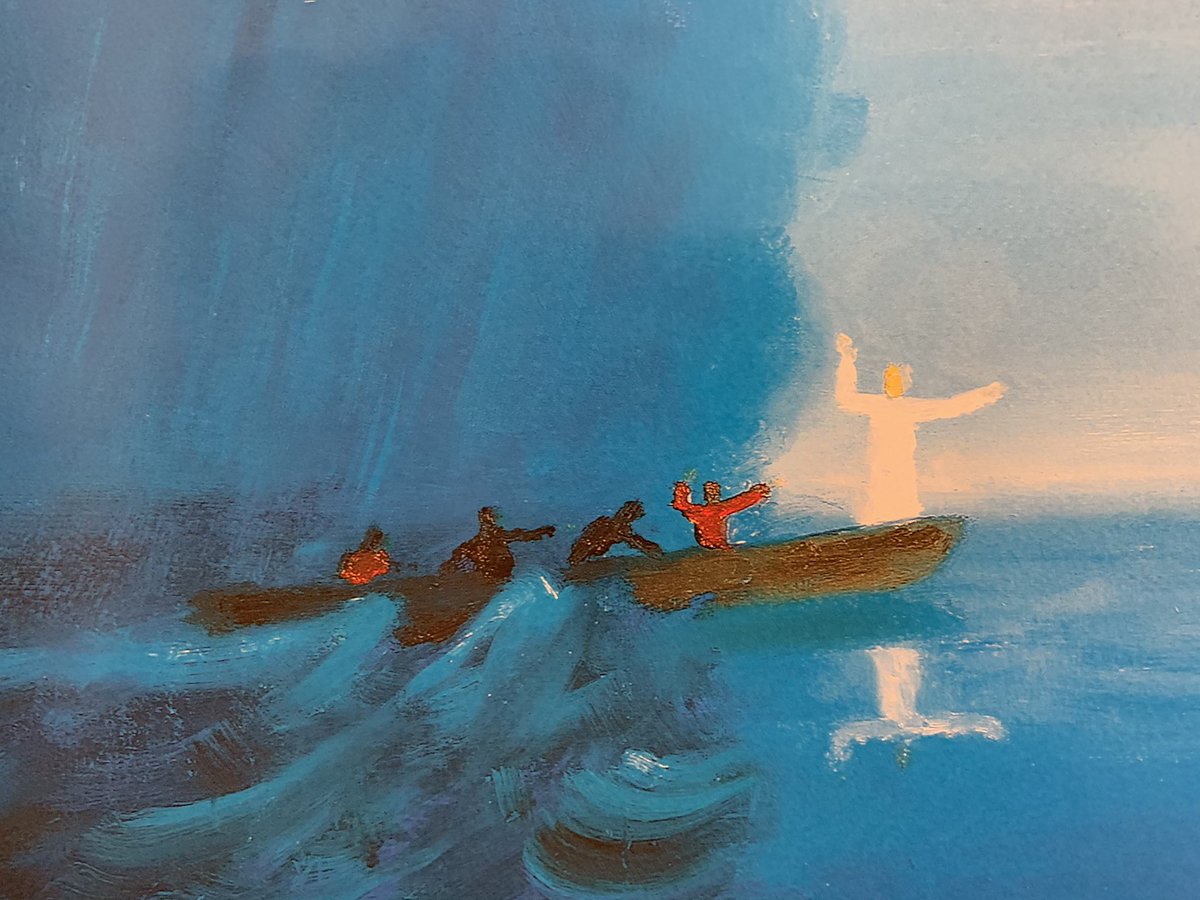
Most churches are beginning to reopen for in-person Sunday worship. Church leaders are taping off pews, sanitizing doorknobs, and trying to figure out what to do with the kids. There are many questions that come as a church transitions from scattered to gathered in the middle of a global pandemic, some of them seemingly unanswerable. All of us are doing this for the very first time, we’re flying by the seat of our pants. But one question that must be answered is this: Why bother?
Central is reopening for public worship next Sunday May 31. And it will not be like it was in February. In fact, it won’t be like it’s ever been in the 112-year history of this congregation. We’re asking our people in the at-risk categories to stay home. We’re blocking off two out of every three pews so we can maintain nine to twelve feet of distance between us. We’re wearing masks. We’re using those individually packaged “Rip n Sip” communion kits (yuk!). No Bible classes for a while, no children’s programming.
What is that going to look like? How is that going to feel?
Eric Gentry is a CofC preacher in Memphis, Tennessee and he wrote an article a couple of weeks ago asking this question: “Is there something about God, church, worship, or community that we are not experiencing now online that we will experience once we return, even under the restrictive conditions? If so, what is it?”
That’s probably the question we need to answer. Whatever “it” is, if we’re eager to experience “it” together at church, we should probably be able to define “it.” I keep hearing how desperate we all are to be back together in the same room, how we can’t wait to meet again as a church. But do we know why? Because when we do come back together, we’ll do so at the risk of compromising the health of our members and guests. It’ll cost us more money in utilities and cleaning than we’ve been spending for the past two months. And with all of us spread out so far apart and wearing masks and the weird communion, it’s going to be a diminished worship experience. It won’t be the same.
So, let’s work through this.
I believe the desire in us to assemble together on Sunday mornings is so deep and so strong because it is the very essence of who we are as God’s people. The Church is God’s gathered people.
In the account of the inception of the Church of Jesus Christ, the Bible makes clear that the people in Jerusalem that day had come from all over the known world. Acts 2:8-11 lists all the foreigners who were there the countries from where they came. The author doesn’t want you to miss it. God had brought these people together from all over and that’s when he established the Church.
Peter preaches that God’s Holy Spirit had raised Jesus from the grave and that Jesus is alive and reigning at the right hand of God and that the crucified Jesus is indeed both Lord and Christ. And three thousand people were baptized in the name of Jesus for the forgiveness of their sins and they each received the gift of God’s Spirit living inside them. And they responded. Saved by the blood of Jesus Christ, guided by the power of the Spirit, notice how they lived and worshiped and served together.
“They devoted themselves to the apostles’ teaching and to the fellowship, to the breaking of bread and to prayer. Everyone was filled with awe, and many wonders and miraculous signs were done by the apostles. All the believers were together and had everything in common. Selling their possessions and goods, they gave to anyone as he had need. Every day they continued to meet together in the temple courts. They broke bread in their homes and ate together with glad and sincere hearts, praising God and enjoying the favor of all the people.” ~Acts 2:42-47
Our God, in the death and resurrection of Jesus, has saved us and called us to be a gathered together people. Staying away from each other goes against our nature as Christians. It’s like a bird trying not to fly. It’s like Ted Nugent trying not to cuss. It’s not going to last very long. We must be together.
The literal definition of Church in the Bible is an assembly of people. The original Greek word is ekklesia. It means a gathering or assembly of people. You find it 111 times in the New Testament. Everywhere you see the English word “church,” it’s a translation of the Greek word for assembly.
David Watson writes, “The word ekklesia always speaks of the coming together of God’s people in answer to his call, in order to meet with God in the company of each other, and to meet each other in the presence of God.”
Meeting together — it’s the very definition of who we are. We are first and foremost a gathered people.
The Christian faith is an embodied faith. Coming together to share the same space, to breathe the same air, and to eat and drink the same meal embodies our incarnational God. In Christ Jesus, our God joins us in physical bodily form and calls us to also come together in community in one another’s physical, bodily, face to face presence. The things we do together like baptism, the Lord’s Supper, and congregational singing are communal acts meant to be shared and experienced in community. We don’t baptize ourselves. We break bread together. We believe the Church, the assembly of God’s people, is a spiritual reality that is manifest and given its power in physical acts done by physical people in physical proximity.
Jesus says, “Where two or three are gathered together in my name, I’m right there with them!”
I think that’s the “it.”
That’s what is so special about Sunday mornings together. It’s the unique presence of our God with us when his people all physically come together. It’s the powerful presence of God with his people on the Day of Assembly. It’s God himself eating and drinking with his people when they come together at Mount Sinai. It’s the Lord’s glory appearing in the midst of his assembled people during the appointed times. Being together in the same physical space in the presence of God — that’s the deal! That’s what we’re craving.
And you can’t get it online.
Peace,
Allan
 Our God is on a mission to save the world. But he has no interest in doing it by himself. God doesn’t do solo missions. He’s not interested in that.
Our God is on a mission to save the world. But he has no interest in doing it by himself. God doesn’t do solo missions. He’s not interested in that.




Recent Comments